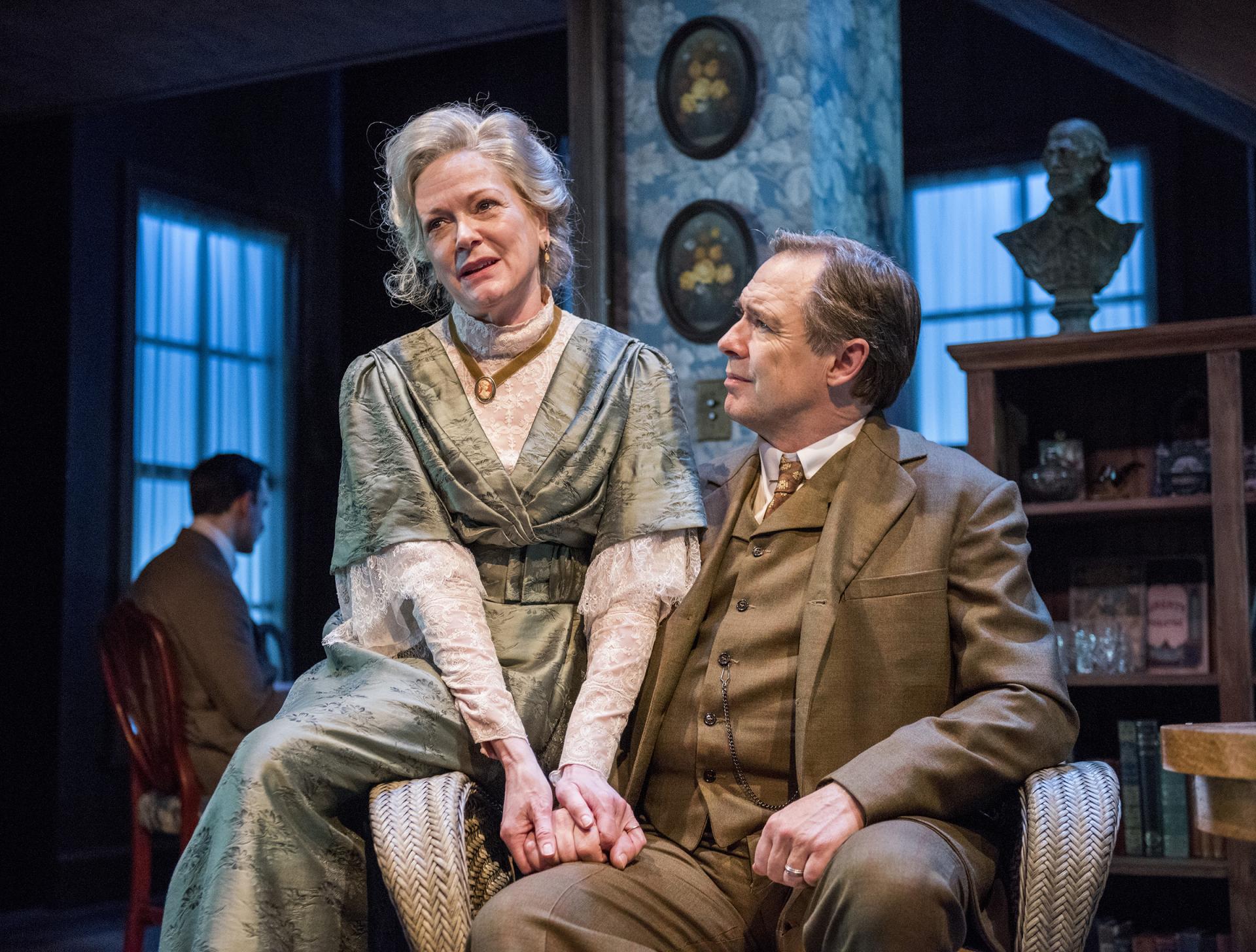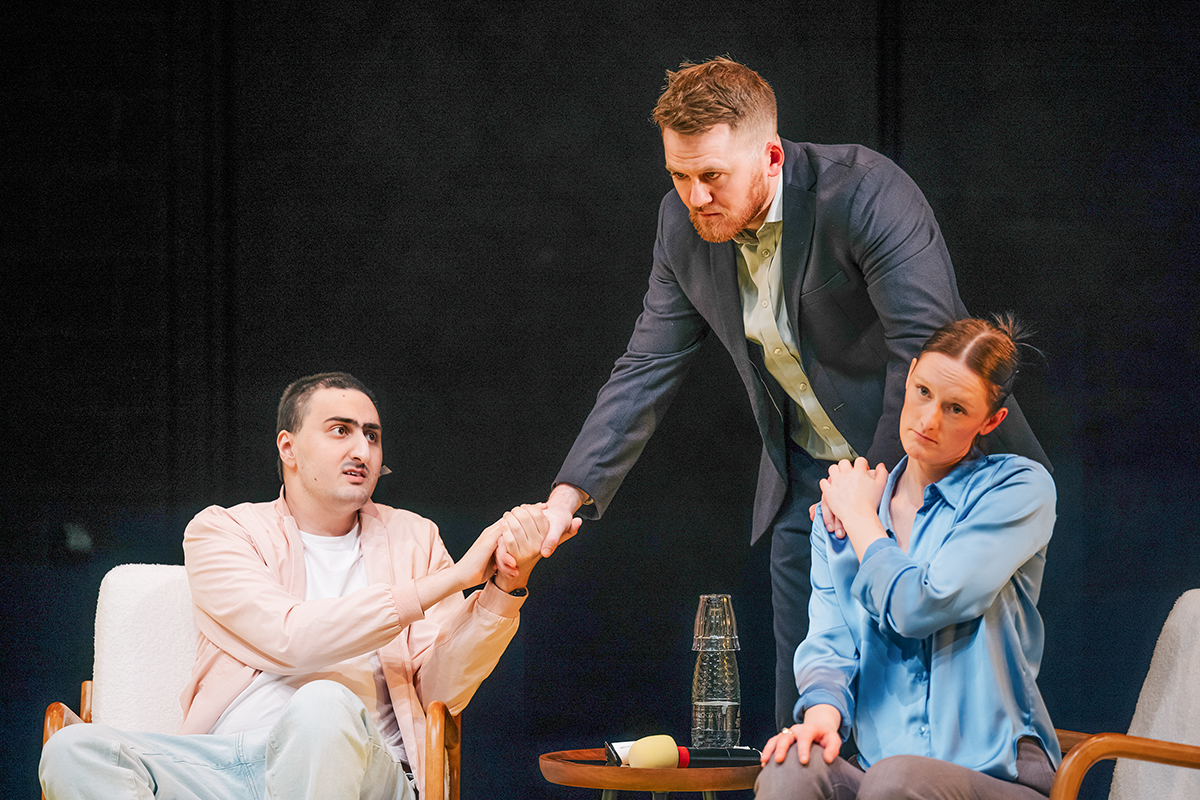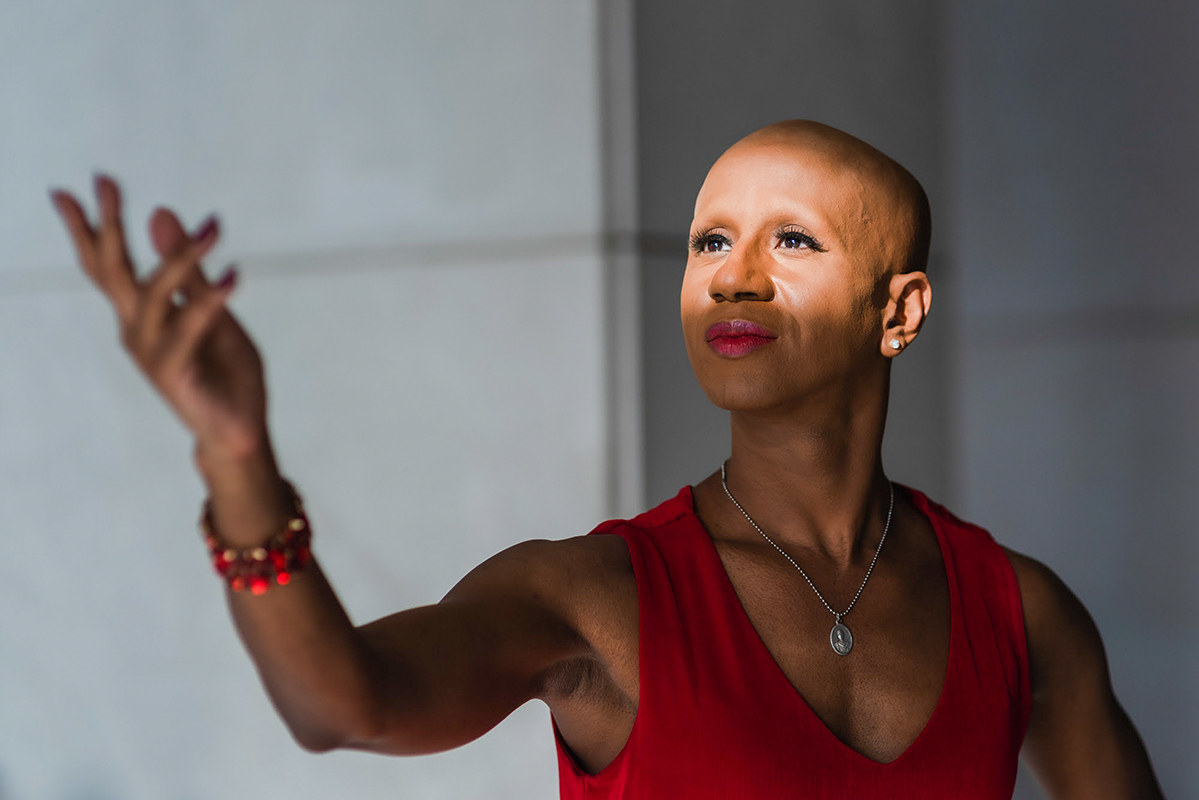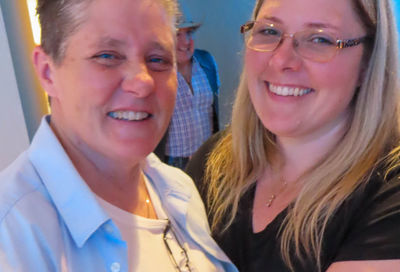Review: Long Day’s Journey into Night at Everyman Theatre
Everyman offers a fit and sturdy depiction of a family falling to pieces.

Urged more than once to stop living in the past, Mary Tyrone, matriarch of the tragic family foursome scrutinized in Eugene O’Neill’s Pulitzer-winning 1956 drama Long Day’s Journey Into Night (![]()
![]()
![]()
![]()
![]() ), explains what she knows to be true: “The past is present.”
), explains what she knows to be true: “The past is present.”
How can she let go of past mistakes when their damaging effects continue to reverberate through hers and her family’s lives with every breath? And, although she can’t let go of her own guilt, nor the shame she’d assign to others for their faults and failures, she’s not alone.
Every member of the Tyrone family — Mary (Deborah Hazlett), her lauded theater actor husband James (Kurt Rhoads), and their sons, aspiring actor Jamie (Tim Getman) and writer Edmund (Danny Gavigan) — bears a heavy burden of shame. Just as heavily, they each bear some level of contempt for their fellow Tyrones, despite enjoying a mutual affection for one another that keeps the family intact.
Visiting them in their summer home can be an exhausting trip inside a vortex of blame and recrimination. Yet, the Tyrone family also can seem inviting hosts and fine company. Described fairly as a lying dope fiend, an alcoholic cheapskate, a sneering cynic, and a morbid poet, they’re contradictory and lovable.
The play’s a hearty feast for any intrepid cast of actors. However, as directed by Donald Hicken in Everyman’s solid new production, this cast makes more of a tidy meal of the Tyrones’ dysfunction. O’Neill’s rollercoaster ride of emotions is alternately gripping and maudlin, but the blunt force of devastation doesn’t really land.
Over three tense acts, Hazlett, Rhoads, Getman, and Gavigan capture the familial attachment, the love between husband and wife, parents and children, brother to brother. Occasionally, the Tyrone men exhibit a silver-tongued bonhomie that can make it fun to forget, as James or Jamie pours another whiskey, how insidiously harmful substance abuse has been to this family.
There’s no forgetting, however, the harm it’s caused Mary, as she struggles to quit — or to hide — her own drug addiction. Hazlett’s performance exudes a thorough command of Mary’s dark, emotional stirrings, but doesn’t equally register the physical anguish of the recovering addict. She conveys the change in temperature when Mary sadly does give into her demons, but again, doesn’t quite embody the transformation.

Her Mary transmits an understanding of how depressed she’s been, without generating the fierce impact of this woman’s restless energy and anger, discomforting though they may be. Perhaps this Mary is just too nice.
Mary’s teeth should be sharp, since the lady and her men are triggered so quickly and easily to snap and jab at each other. The swift turns of emotion require the ensemble to swerve on a dime from hugs and jokes to fury, and back again. Hicken and his quartet (plus Katharine Ariyan lending able support as the family’s maid, Cathleen) handle those curves with precision, if not much humor. Rhoads really digs in deep for his portrayal of defensive, aggressive patriarch James. The elder Tyrone is none too nice, yet, in a believable way, still appealing.
They’re all still appealing, still worthy of love. It’s that aspect of the familial bond that most effectively comes through in Getman and Gavigan’s portrayal of self-described bum Jamie and the family’s beloved last great hope, Edmund. Extending unconditional love to those who constantly wound you brings its own sort of pain. Getman and Gavigan make that pain felt.

The true tragedy lies in the story of the Tyrone sons, as the death of hope looms darkest over their shoulders. O’Neill apparently foresaw more gloom than glory in their futures, and this production suggests that he wasn’t being pessimistic. He was just facing facts.
Countless families struggle with addiction, some dealing with it better, some worse than the Tyrones, or the O’Neills, for that matter. The play, and this production, deliver the satisfaction of knowing them, and the sadness of knowing how badly families like them are hurting.
Long Day’s Journey into Night runs until March 4 at Everyman Theatre, 315 W. Fayette Street, Baltimore. Tickets are $10 to $65. Call 410-752-2208, or visit everymantheatre.org.
Support Metro Weekly’s Journalism
These are challenging times for news organizations. And yet it’s crucial we stay active and provide vital resources and information to both our local readers and the world. So won’t you please take a moment and consider supporting Metro Weekly with a membership? For as little as $5 a month, you can help ensure Metro Weekly magazine and MetroWeekly.com remain free, viable resources as we provide the best, most diverse, culturally-resonant LGBTQ coverage in both the D.C. region and around the world. Memberships come with exclusive perks and discounts, your own personal digital delivery of each week’s magazine (and an archive), access to our Member's Lounge when it launches this fall, and exclusive members-only items like Metro Weekly Membership Mugs and Tote Bags! Check out all our membership levels here and please join us today!


























You must be logged in to post a comment.